In this issue: Will Israel Attend Moscow’s Victory Day Parade?, Ukrainian Soldier Discovers He’s Jewish, the Antisemitic Incidents near Kharkiv and in Kryvyi Rih.
Will Israeli Officials Attend the Victory Day Parade in Moscow?
May 9, Victory Day over Nazi Germany, is Russia’s top national holiday, with a televised parade, speeches, and concerts. As many have noted, the Soviet victory over the Nazis is the legitimizing myth of Putin’s Russia. Western attendance at the ceremonies in Moscow has been a bellwether of relations with Russia. German Chancellor Angela Merkel attended in 2010, on the 65th anniversary of the defeat of Nazi Germany, but not later; Israeli Prime Minister Benjamin Netanyahu was there in 2018, a decision that aroused controversy, since it was after the Russian seizure of Crimea and in the midst of the Russian war in Donbass.
Since the full-scale Russian invasion of Ukraine in 2022, Europe and the United States have not attended the parade in Moscow, and conversely, have not invited Russia to attend the 80th anniversary of D-Day, and of the liberation of Auschwitz. For those reasons, the remarks of an Israeli diplomat in late March, in an interview with the TASS news service, elicited widespread attention. Alexander Ben-Zvi, Israel’s Ambassador to Russia between 2020 and 2024, and acting ambassador at the time of the interview, was asked if Israel would continue to celebrate May 9. He replied:
“Yes, let’s not forget that May 9 is an official date in Israel. We are one of the few countries outside the Commonwealth of Independent States where May 9 is Victory Day. […] As far as I know the Ambassador of Israel will definitely attend.” He noted that “Monuments to the fighters and heroes [of World War II] stand in Natanya and Jerusalem.”
This was a reversal of Israeli policy for the last three years, and Russian media jumped on these comments as an indication that Israeli relations with Russia were improving. Articles in the Russian press listed Israeli attendance, alongside the heads of state of various countries including China’s Xi Jinping, Venezuela’s Nicolas Maduro, and India’s Narendra Modi.
The news elicited anger and outrage among many Russian-speaking and Ukrainian-speaking Israelis. The group “Israeli Friends of Ukraine” organized a petition against participation in the Russian Victory Day parade, which has garnered 6,500 signatures to date. Entitled “Not in Our Name”, it reads in part:
“We citizens of Israel express our shock, shame and deep concern regarding the decision of the government of Israel to send an official delegation to the May 9 ceremony in Russia – a country that is conducting a bloody war of annihilation against Ukraine […] We ask: If Hamas conducted a ‘Victory Parade’ and representatives of Western countries attended it – would you be silent? Where is your conscience? Where is your moral responsibility?
Israel cannot allow itself to participate in a propaganda campaign by this bloody regime, which exploits the memory of the victory over Nazism in order to justify crimes against humanity in our time. […] The dispatching of an official Israeli delegation to the ceremony, or the presence of the Israeli Ambassador – is not only a betrayal of democratic values and justice; it is an actual joining of the dark side of history.“
Other voices, such as Israeli analyst Sergei Auslender, protested that Israel should not be acting like a friend of Russia, a country which actively arms and supports Hamas, and which received a Hamas delegation immediately after the October 7 massacre. Both the right wing newspaper Yisrael Ha-Yom and the left wing online Davar published articles sympathetic to the petition.
Last week, unconfirmed rumors spread that the Israeli delegation to Moscow would be headed by Prime Minister Netanyahu. A separate petition has been issued condemning that possibility.
The broader context of Israel’s apparent decision to go to Moscow on May 9 is the rapprochement between the Trump Administration and the Putin regime. Israel has followed the Trump Administration’s lead, at least in its public diplomacy. It voted with the US and eight other countries against a United Nations resolution condemning the Russian aggression in Ukraine. If Israel sends a delegation to Moscow for Victory Day, it will be with tacit US support.
A Passover Story and Its Lesson
A Ukrainian soldier discovered last week that he was Jewish – by pure coincidence. Here’s how it happened.
On the eve of Pesach, Rabbi Yonatan Markowitz of Kyiv distributed Matzot at an army base not far from the capital city. One of the soldiers spoke at that moment on the telephone with his mother, and happened to mention to her that a rabbi was visiting their base for Passover. The mom then told him over the phone that her mom (the soldier’s grandmother) had been Jewish.
After the call, the soldier went over to Rabbi Markowitz and repeated what his mother had told him. The rabbi informed him that according to Jewish law he, the soldier, was Jewish. “It was an extraordinary moment” said Rabbi Markowitz. “The soldier stood there in uniform and suddenly understood that he belonged to the Jewish people. He was very excited and so was I. Thanks to the public work of the Jewish community on the streets of Kyiv, people are rediscovering their Jewish identity which was repressed or forgotten.”
The soldier and rabbi agreed to meet again in Kyiv to discuss the significance of Jewish identity.
That’s the story. Now a little analysis. The linchpin is that the mom shared the information about her mother’s Jewishness casually, by coincidence, over the phone. This was not some deep secret that she wanted to suppress, or a source of discomfort or embarrassment. It was just a fact that came up due to the circumstances.
This illustrates the normalization of Jewishness in Ukrainian society. For the vast majority of Ukrainians today, being Jewish carries no particularly negative baggage. The president of the country is Jewish, and is quite popular; the previous defense minister (Reznikov) was Jewish. So what’s the big deal.
The second key moment is the soldier approaching the rabbi, and agreeing to meet with him again. This illustrates in microcosm the process of Jewish re-ethnification that is taking place in Ukraine. Many people with one Jewish grandparent are embracing this part of their identity. People who 5-10 years ago would not have cared about that fact (the Jewish grandparent), or would even have hidden it, are now drawn to Judaism. I can say from personal experience that many, perhaps most, of the congregants I’ve met in Kyiv synagogues do not have two Jewish parents. They are either converts, or are Jewish on their mother’s side only. This is the case especially among younger people. I wouldn’t be surprised if this Ukrainian soldier ended up being just such a congregant one day.
Two Antisemitic Incidents: in Kharkiv and Kryvyi Rih
A group of teenagers desecrated the Holocaust Monument at Drobytsky Yar, outside of Kharkiv where at least 17,000 Jews were murdered by a German Einsatzgruppe in 1941. The teenagers made the Hitler salute on the steps of the monument (built in 2002), and they posted photos of themselves on a popular Kharkiv Telegram channel. They took the photos on April 20, which some pointed out was Hitler’s birthday. The United Jewish Community of Ukraine reported the incident, and appealed to the police authorities to arrest the perpetrators.
I’m not sure that such an incident would elicit much public attention if it happened in an American city. But in Kharkiv, the reactions were strong and swift. The Mayor of Kharkiv Ihor Terekhov issued the following statement:
“Drobytsky Yar isn’t just any place – it is an open wound of Kharkiv. It is silence which screams of the pain of thousands of innocent lives. When I see a photo of three young people mocking the memory of Holocaust victims, I am deeply personally outraged. […] We do not live a century ago. We live in 2025, in a city that is fighting for freedom, for dignity, for the right to be human. Any shadow of the swastika in Kharkiv will be stamped out. We remember Drobytsky Yar, and we will not allow anyone to mock that memory.”
A day after the photos were posted online, the police apprehended the teenagers involved. During questioning they said that they made the salutes “as a joke” and apologized for their actions. The police announced that the youngsters were accused of “preparation and dissemination of Communist and Nazi symbols, and propaganda for the Communist and Nazi Totalitarian Regimes” (point 436-1 of the Ukrainian criminal codex), which carries a maximum penalty of five years of imprisonment. The case is ongoing.
A more serious antisemitic incident occurred this week in Kryvyi Rih, where a group of teenagers in balaclavas threw two Molotov cocktails at the entrance to the local synagogue. Fortunately, the synagogue doors were made of reinforced glass and did not shatter. The outdoor fire was quickly extinguished. Just a few days earlier, a similar group of covered teenagers slashed the tires of a truck that belongs to the community, and defaced its Jewish inscriptions.
I spoke with Rabbi Liron Edri of Kryvyi Rih about the incident. (As readers may recall, I interviewed him a few weeks ago after a major Russian aerial attack on Kryvyi Rih.) He says that these are the most serious antisemitic incidents in Kryvyi Rih since he arrived in the city twenty-five years ago. He was impressed by the fact that the attackers were a group, not an individual, and that, according to security cameras, they walked calmly away from the scene after the assault on the vehicle. Rabbi Edri reports that the police and the SBU (Ukrainian Security Service) are working intensively to identify and apprehend the perpetrators. The synagogue will intensify security measures, but he stressed that they would not be like those in Europe (i.e. no heavily armed guards).
The Ukrainian authorities ascribe high priority to antisemitic attacks and vandalism, in part because the Russians exploit such incidents to claim that Ukraine is a neo-Nazi country. In certain cases, the authorities have been able to confirm that the perpetrators were provocateurs hired by the Russian security services.




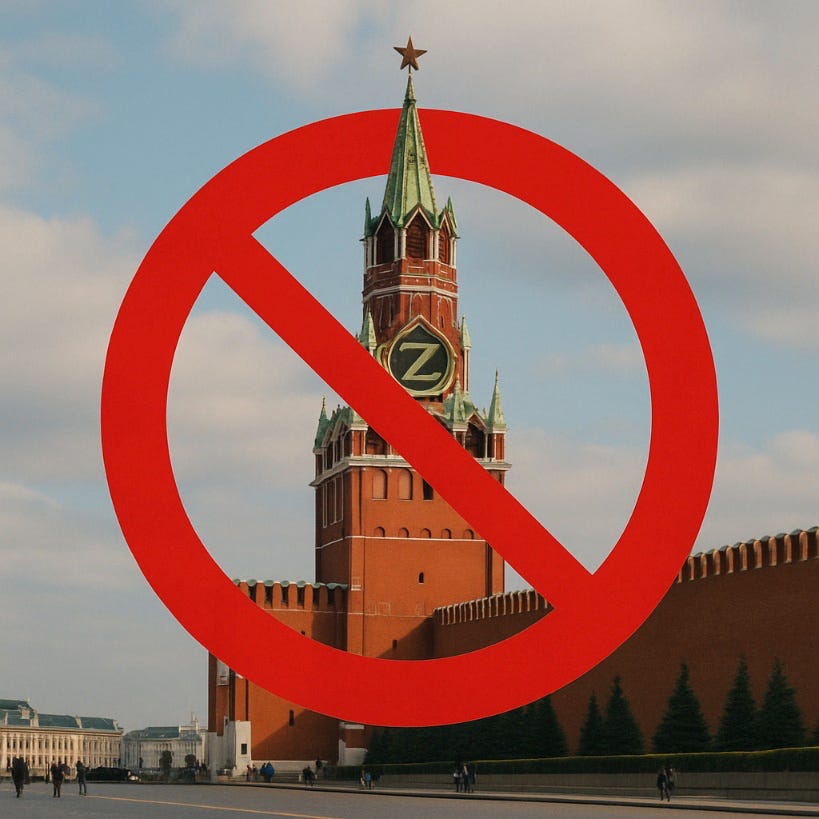
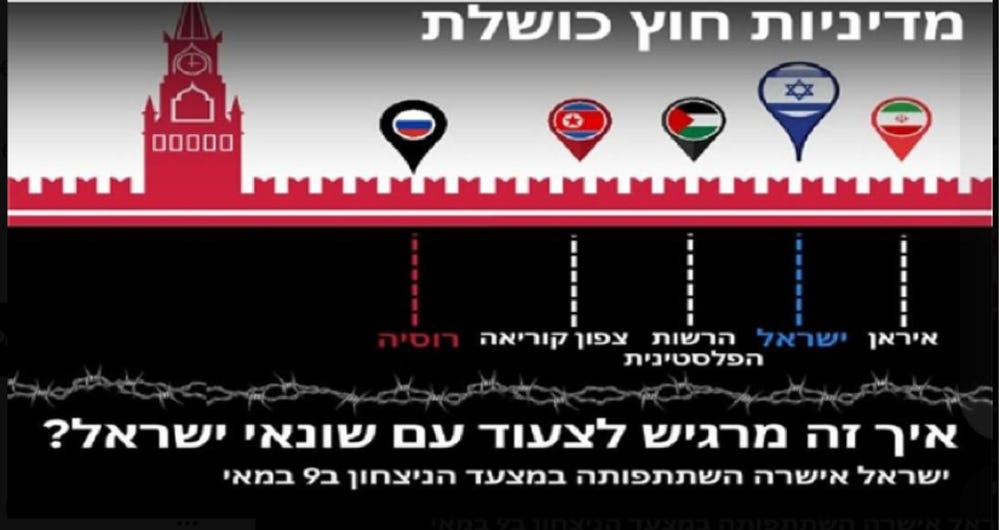
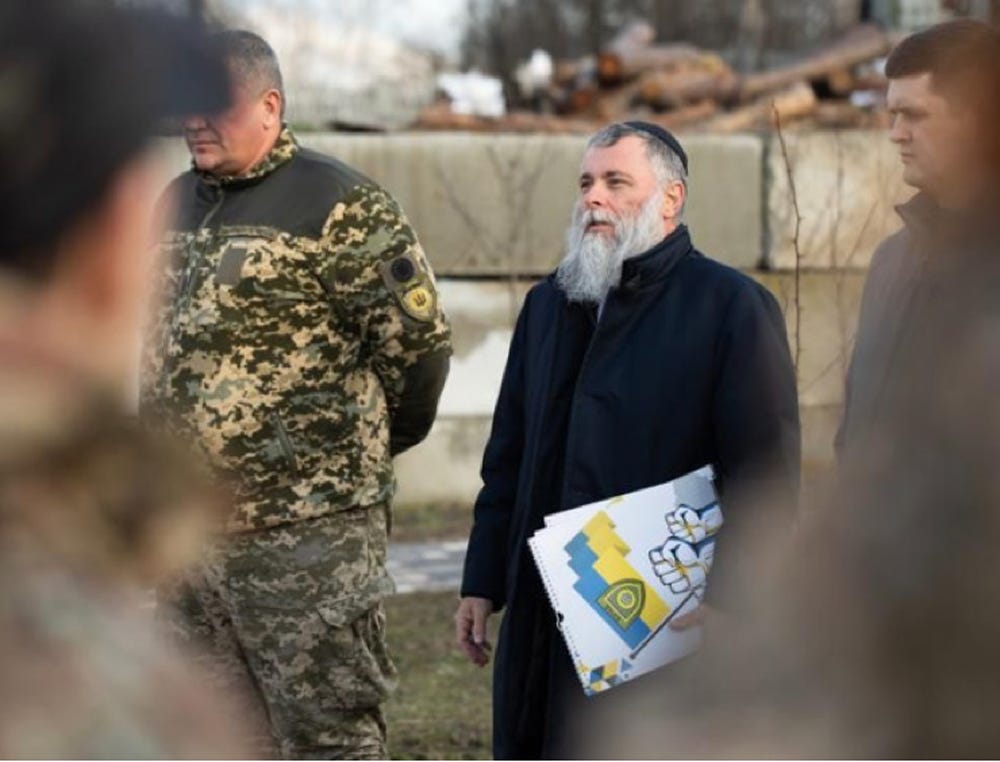
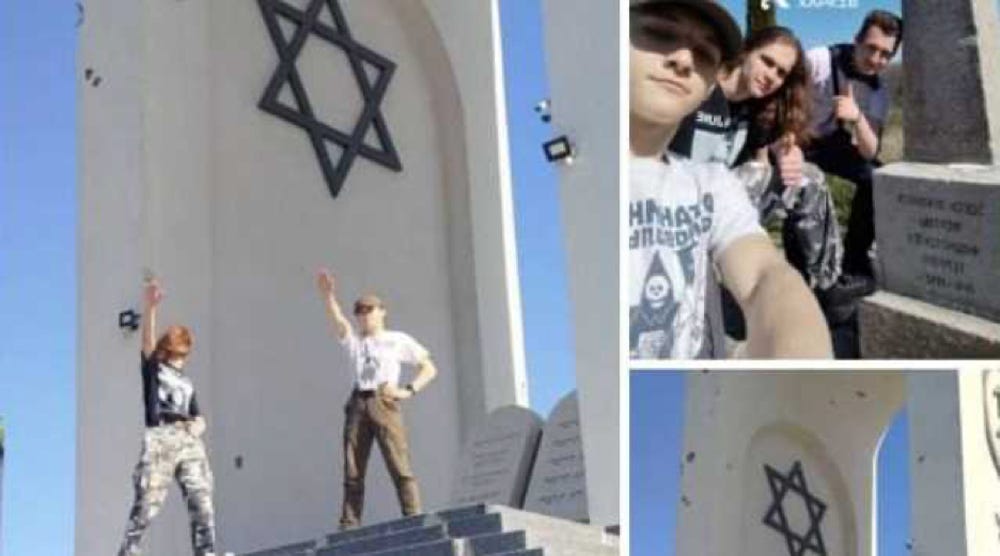
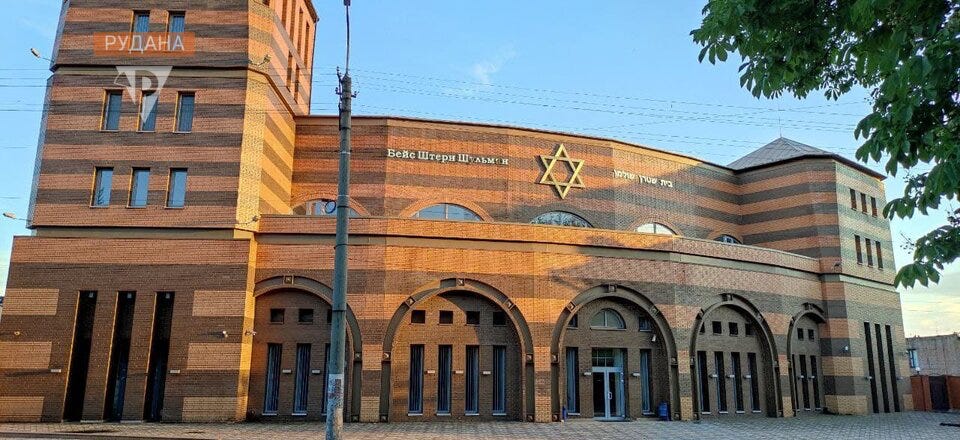
Thank you for sharing. Very informative!